On the Idea of a Christian Village
Real, local community is where life is lived and lived best; but people with shared ideas are found in the midst of our digital means of communication across time and place.
Yesterday, I tweeted, “Envisioning an online community as a hub for IRL Benedict Option communities.” The tweet was directed at Holium, a company that is, conveniently, building a digital platform for online communities.
This comes as I am, of late, softening my approach to technology. Per The Benedict Option’s own recommendation, I have been keeping myself apart from many of the digital technologies of our day. However, aiming to be the producer and not the consumer of content, I have been seeing the various other benefits of the use of technology.
One of these benefits is the ability to communicate. For instance, using flip-phones, and more recently the “Light Phone,” I have been relatively free, not from distraction, which my laptop can provide, but from interruption by human communication. On the Light Phone, texting is nigh-impossible, on a miniature Kindle-screen with a snail-paced refresh rate. And any other applications for communication, like WhatsApp or Slack, are unavailable.
A couple of weeks into having an iPhone again, the main benefit has been being able to communicate with other people. Texts are not laborious; speaker and microphone quality are increased on phone calls; and I can communicate via Slack, Twitter, and WhatsApp from my phone. As an already introverted fellow, I find that the additional barrier to communication was doing more harm than good.
I might have known that the value of digital media was communication from my experience with Slack for my F3 community. F3, the national men’s workout group, uses Slack to communicate about several times-a-week early morning workouts, for banter - we call it “mumblechatter” - and to put on events for fellowship and service. Compared to spying on one’s high-school acquaintances on Facebook, this was a much better use of social media, up to the level of what Ivan Illich called “Tools for Conviviality.” While Illich (not to be confused with Ilyich, Tolstoy’s eponymous character) was a foremost critic of technology, he envisioned what technology could and should be as a tool for the facilitation of human community.
I had seen the same occur through another organization: The Davenant Institute. After reading a blog, The Calvinist International, I saw a small conference advertised on politics and theology - rather, a Convivium. I submitted a paper to present, and my wife and I attended that summer. Following, we were invited to join a private email list, “The Reformed Irenics.” For several years following, this was our main digital, social media. This private group commented on political and ecclesiastical happenings, debated theology and philosophy, and kept up with one another personally. I attended a half-dozen other Davenant convivia across the country over the following years and got to know a community of young theological scholars among whom I could count myself. This was technology as a tool for conviviality, quite literally.
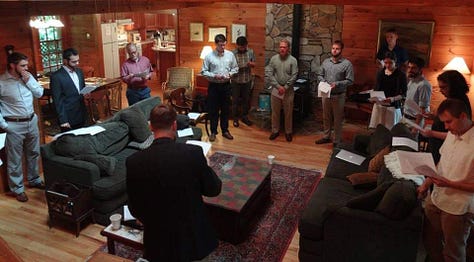
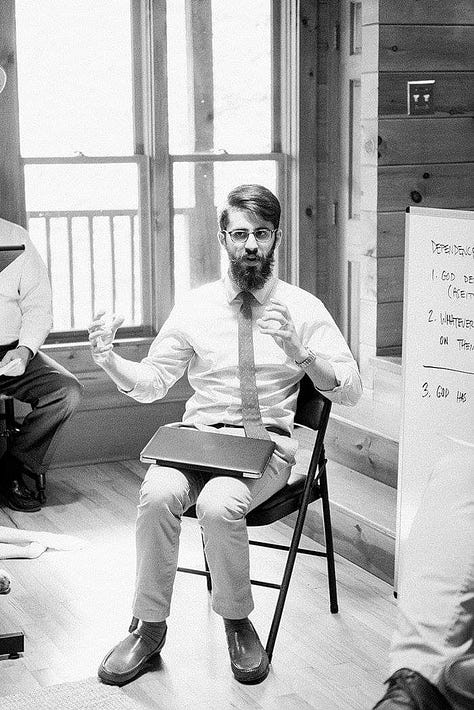
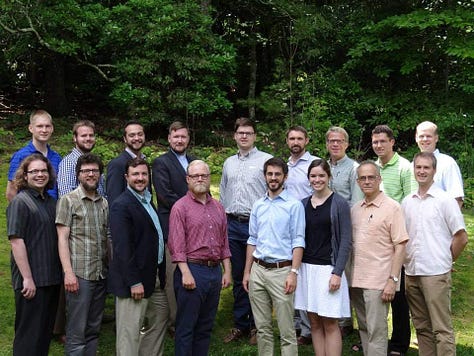
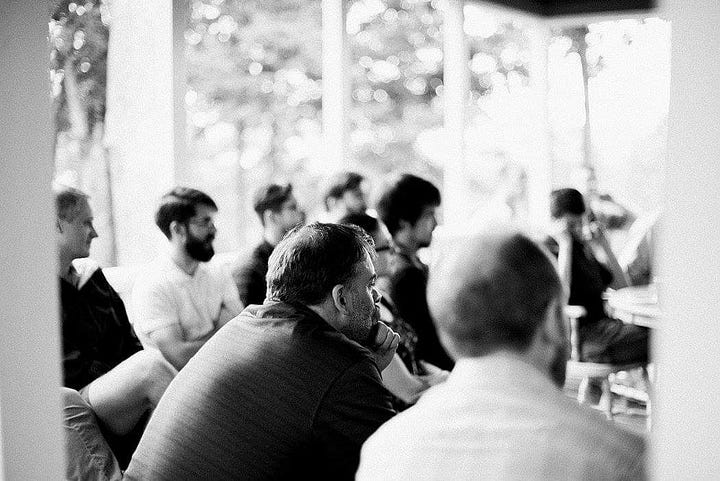
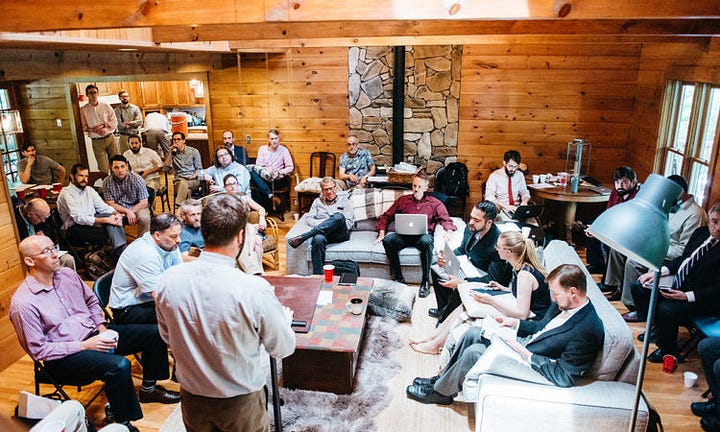
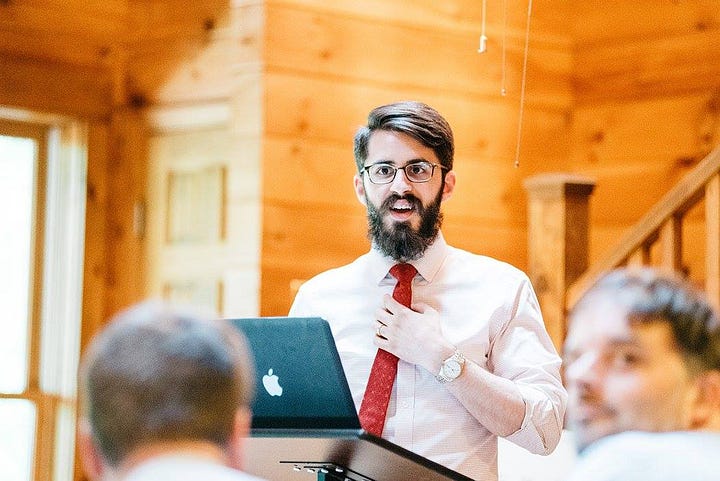
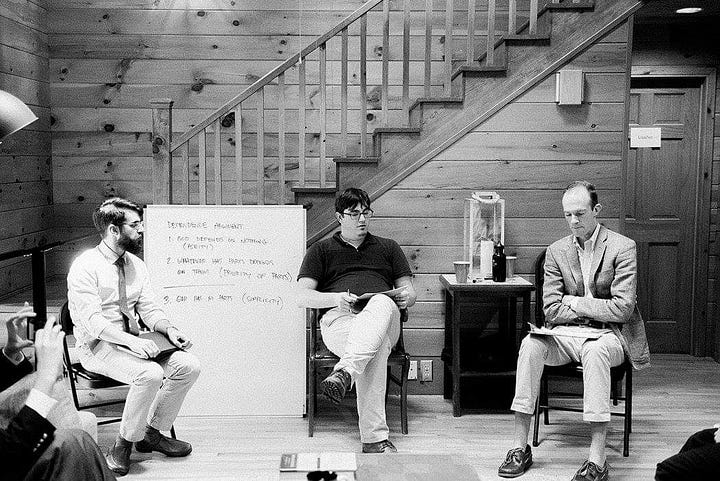
Over the last couple of years, my wife and I have begun to envision our own version of “The Benedict Option.” It was catalyzed by the social isolation we experienced during the lockdown and our stumbling upon and later moving to the new urbanist development of New Town at St. Charles, in St. Charles, MO. (Think “The Truman Show,” in Seaside, Florida but in a Missouri floodplain.) So far, things are going swimmingly. We have a great community through the neighborhood and especially through F3, which connected us with some of the best men and families in the community. We have built a social network in a year and a half that more than adequately replaces what we had when we lived among swaths of Christians in Wheaton, Illinois (though there, we almost only knew those with whom we went to church).
However, several pieces are missing. For church and school, we have found phenomenal options, but each is 25-30 minutes afield on major highways, and in opposite directions. There is little (though not no) overlap between the communities of church, school, and neighborhood, and the commutes wear on us. Meanwhile, the type of vision of Christian community we have and the level of theological and philosophical thought we are engaging in are not found among our neighbors, only among some of our fellow church-goers, who live anywhere from 30-75 minutes away from us.
At the school, we find that elements of our vision are shared, but mostly by staff and teachers, less by fellow parents. It is not as though moving the school toward us, a real possibility, would directly bring us connection to like-minded families.
What we really desire is the presence of another like-minded family within walking distance in New Town, and not just one other but several others, ideally a community, a village within the village. But how? Most of our Christian friends here have not taken an interest in moving into New Town (though we have piqued some interest). And for a local, the appeal might simply be the beauty of the water views and the attractiveness of the home design, less a vision of Christian community we share. (While we think New Town is a place to plant oneself for the long-term, many of the locals have moved in and out of New Town, not even grasping the new urbanist critique of the surrounding, no-sidewalk suburbs.)
This is where the Internet comes in. For good and ill, the Internet is where ideologues congregate. While one can search far and wide in any given geographical area for someone who shares one’s ideas, on the Internet these people are a dime a dozen. This presents a challenge but also an opportunity. The challenge is that real, local community is where life is lived and lived best; but people with shared ideas are found in the midst of our digital means of communication across time and place. The idea of a physical place where an idea can be lived out requires bridging this gap. The opportunity is, of course, that one could find people through the Internet who share one’s ideas and persuade someone to embody those ideas in a particular place.
Of course, we don’t think that everyone who wants to live The Benedict Option must live it with us, right here. But for Benedict Option communities to arise, people have to be in communication with other people who also want to live it, to discuss where best to do so, or where it is already being done, and so on. What we need is a national, or even international, tool for communication about the creation of Benedict Option communities, and once those are created, to communicate within each community.
For ourselves, my wife Anna has written here about the value of living in a new urbanist development, as we do. To my mind, this solves the question of the physical infrastructure of a Benedict Option community, one of the hardest things to change or do anything about. Think of it as the hardware of a BenOp community; the software, the people, their means of communication and modes of organization - those can be slotted into a given place. But if one’s built environment is resistant to close community and walkability, there is little you can do besides acquiesce to the physical distance car-centric suburbia requires and creates.
The center of our town even has an empty cathedral simply waiting for a traditional church to fill it with liturgy and singing. We have the infrastructure of a Christian village; but we’re looking for fellow villagers to form, as it were, a Christian village within the village of New Town. Along the way, we’d like to inspire others to form similar communities, providing a model of how it can be done. Subscribe to my Substack and to Anna’s to track our progress and get a taste of new urbanist, Benedict Option life!


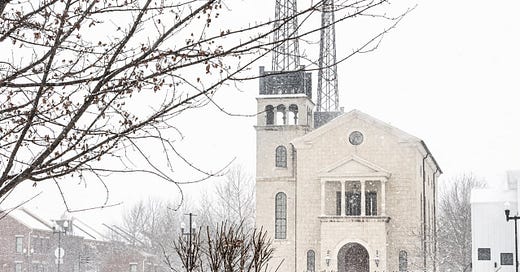


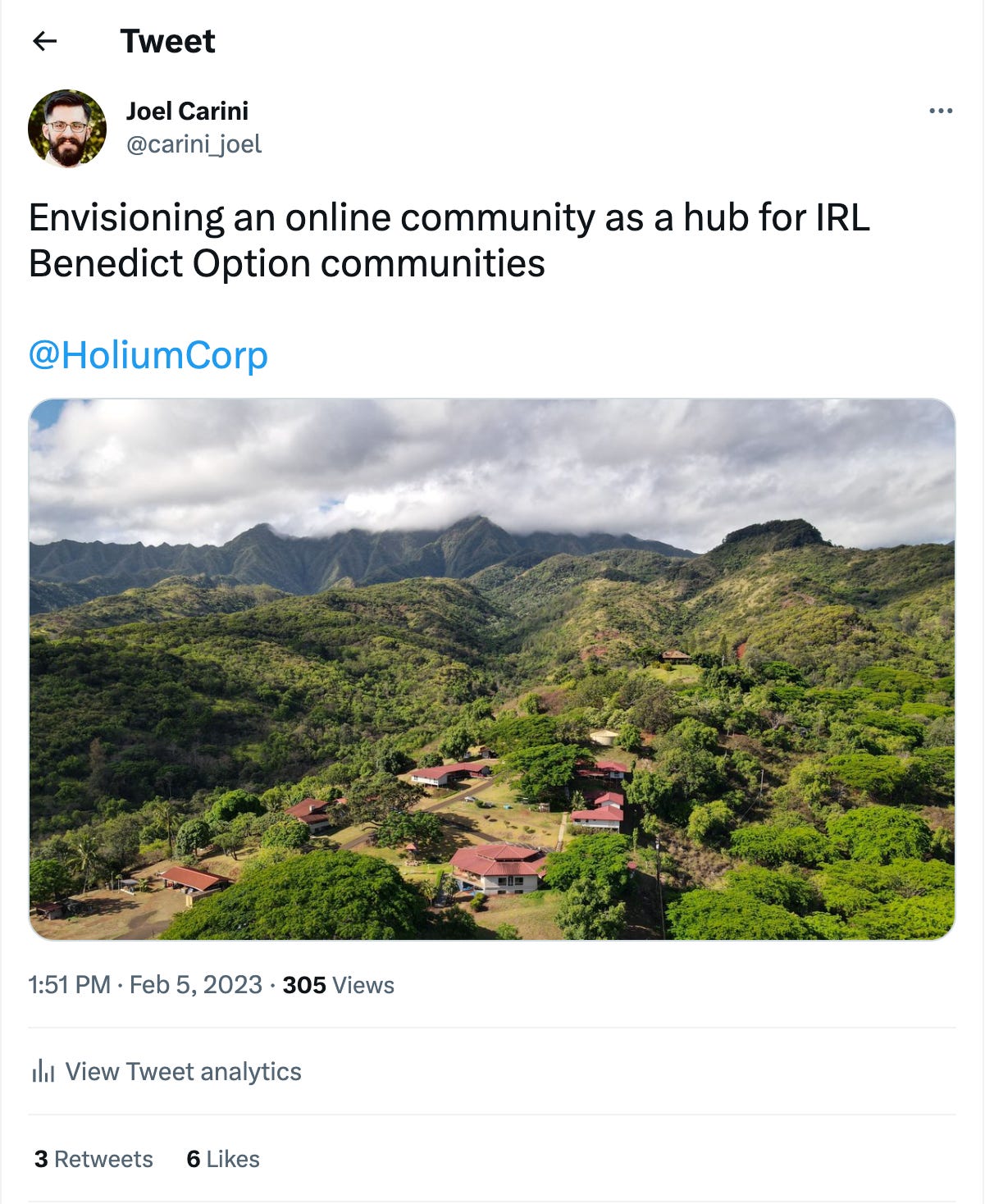
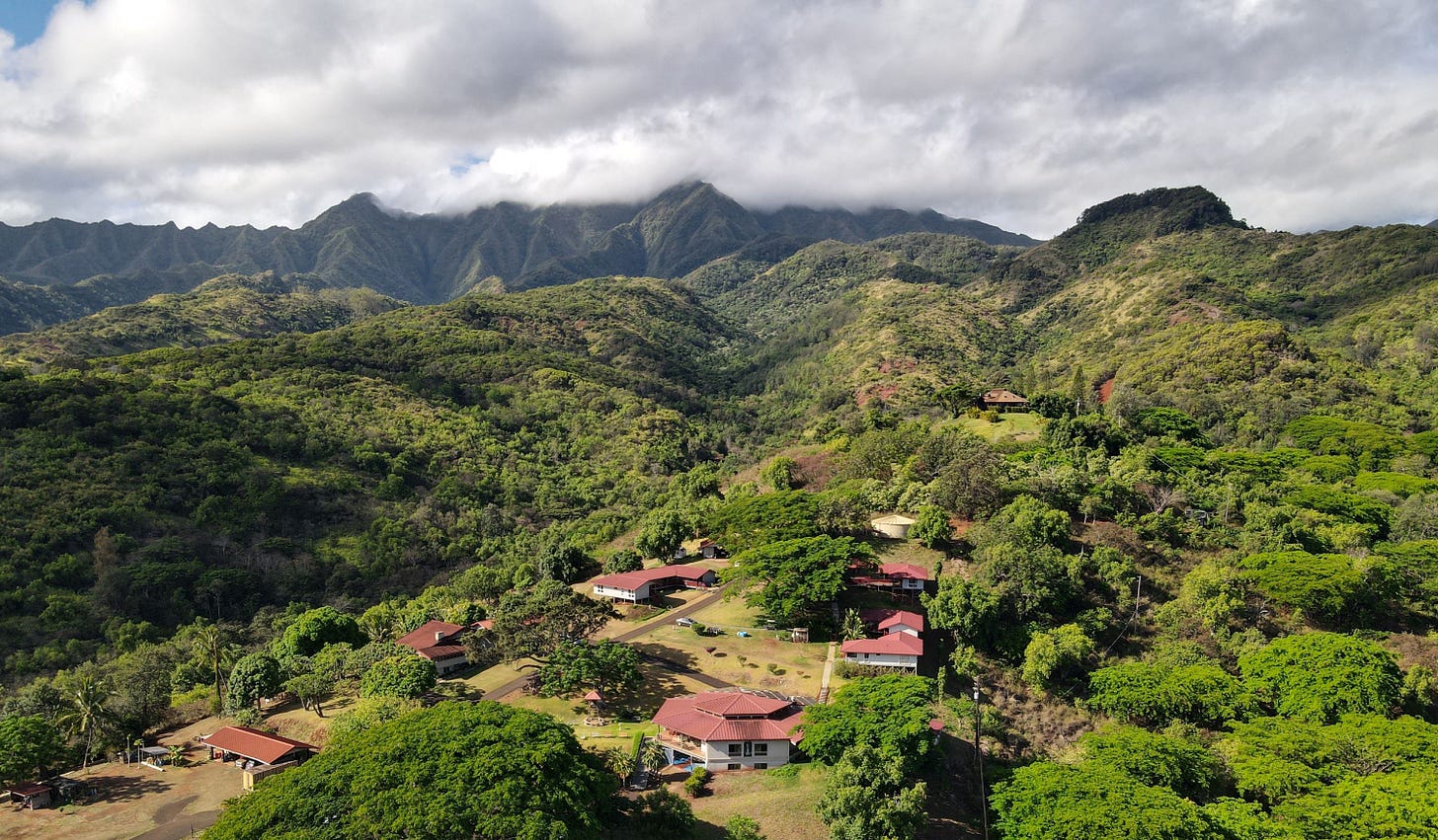
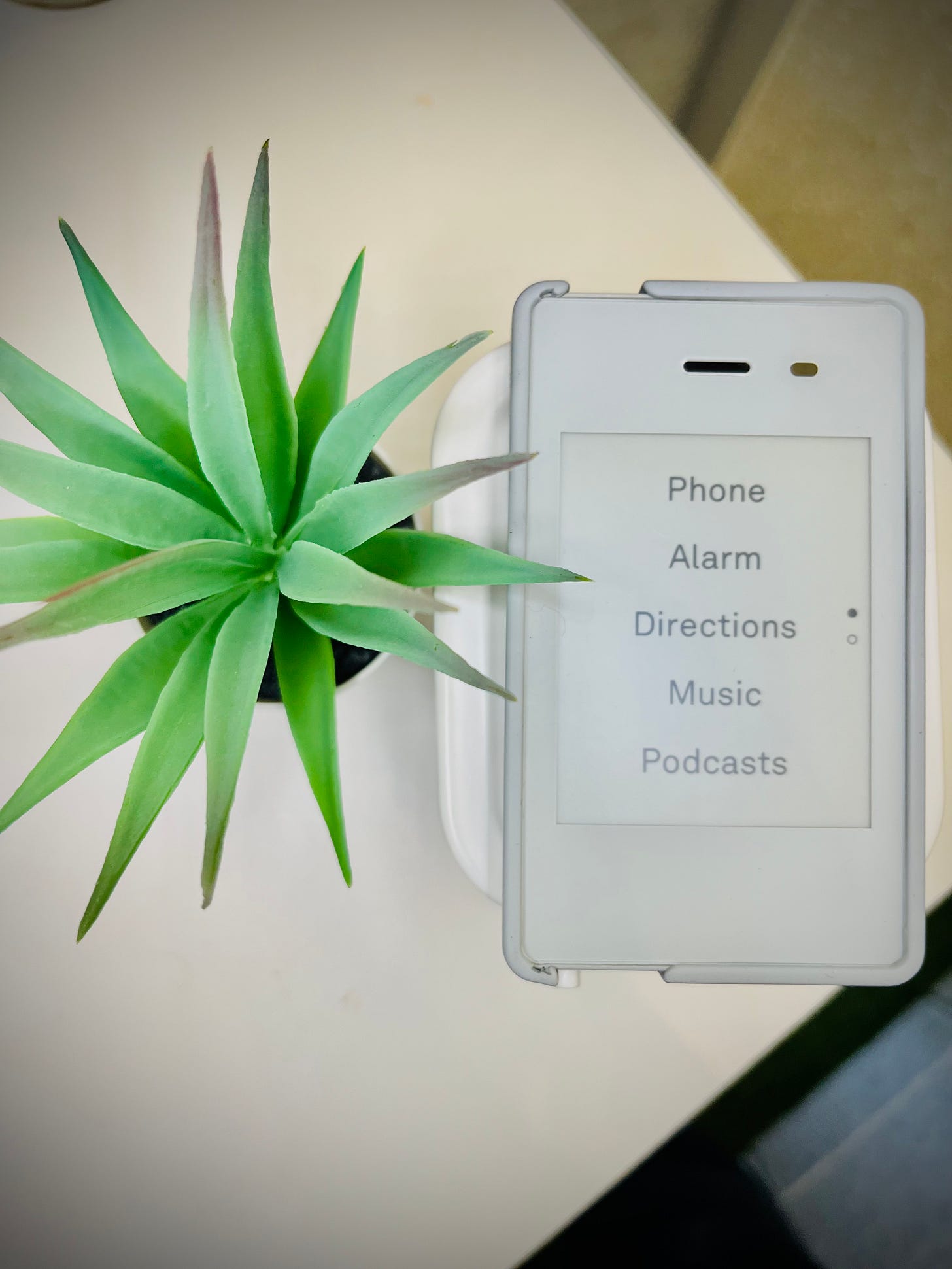

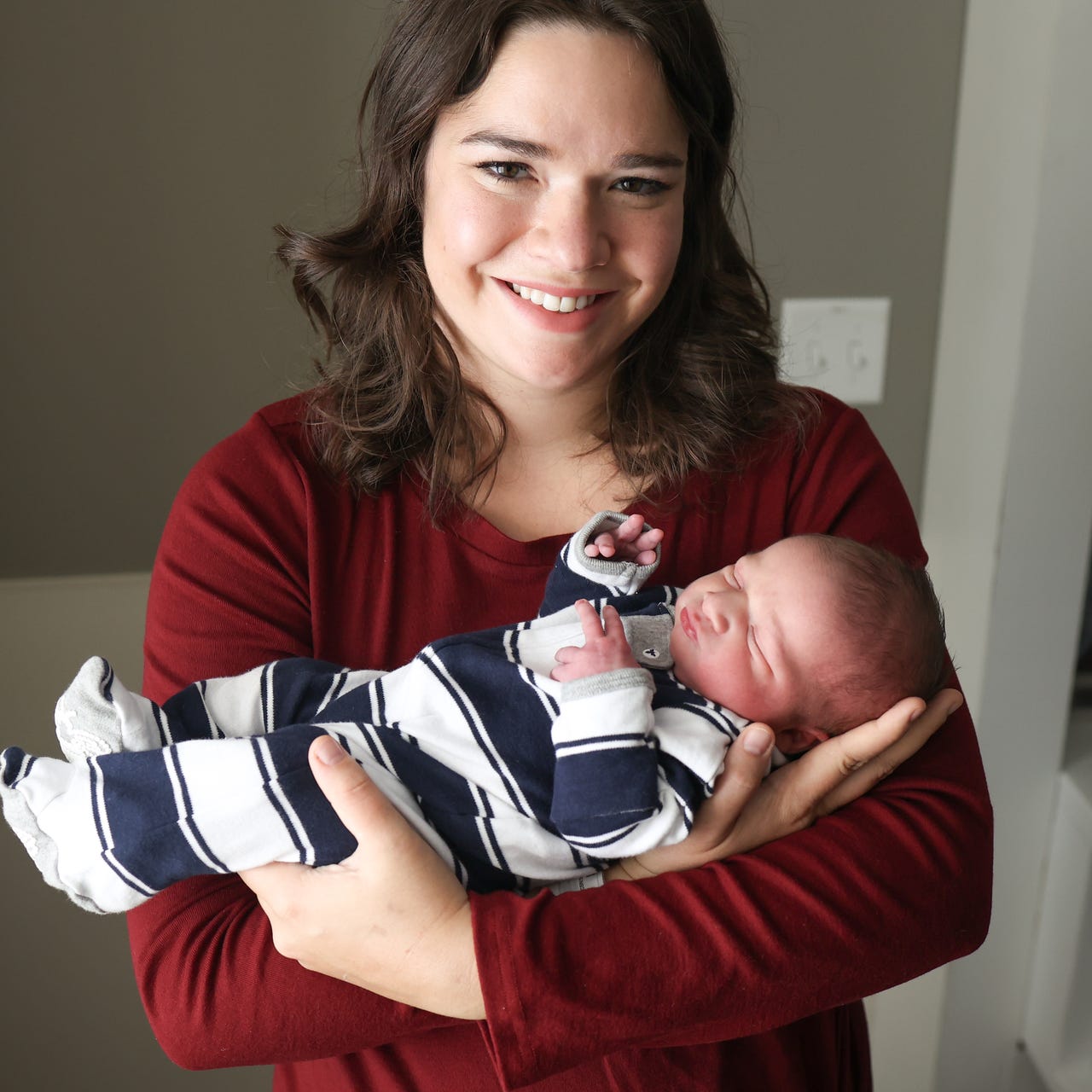
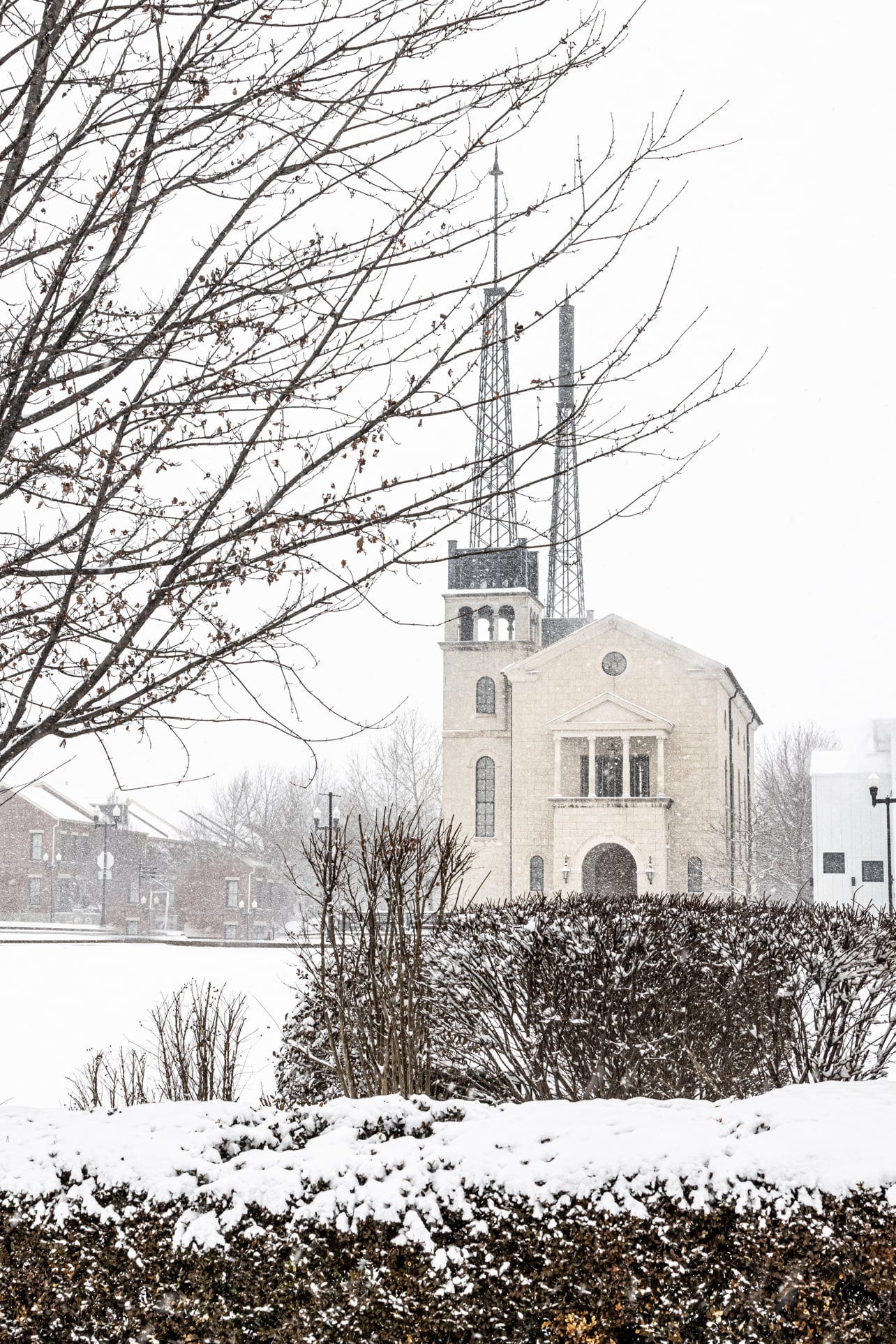
I pray some like-minded neighbors move in! Hold the ground, spread the vision, and pray. This is what I'm doing in my little corner of East Phillips, Minneapolis. You might also find some encouragement through connections in nurturingcommunities.org (get wisdom from those who've actually built/sustained various communities).
Winning others into communal life is kinda like dating. You can imagine the "perfect" person who shares ALL your hopes and dreams, but in the end we trust God brings the imperfect persons (or, in this case, persons) who will be able to join us on this Kingdom project in the way that He wills.